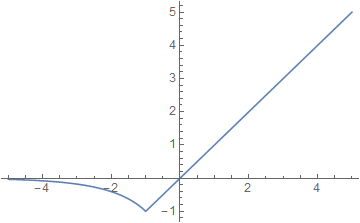I have
Simplify[ProductLog[x*Exp[x]]]
By the definition of the Lambert function, this should be simply x. But Mathematica outputs this:
ProductLog[E^x x]
Adding assumptions (e.g., x is real) does not help. Why doesn't Mathematica treat ProductLog[x*Exp[x]] as x, just like it treats Log[Exp[x]] as x (if x is real)? Due to this I cannot, e.g., verify some solutions that DSolve gave for a certain ODE, and this solution contained ProductLog. When I substitute that solution into the original ODE, I do not get zero identically, but instead a cumbersome expression, even after applying FullSimplify.

